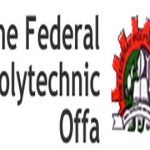EVER since crude oil was discovered in Nigeria on January 15, 1956, the country has never remained the same again. Nigeria has strategically abandoned other sources of income where the nation could rake in trillions of naira annually.
Until the discovery of crude oil, Nigeria’s major sources of income were majorly agricultural produce such as groundnut, cocoa, cashew, palm oil, among others. These produce are free gifts of nature that are planted, harvested, processed and exported under import-export substitutions policy of the then Nigerian government.
Through income earned from cocoa and other agricultural producce, Chief Obafemi Awolowo, the first Premier of the Western Region, built Airport Hotel, Ikeja, Lagos; the University of Ife (now Obafemi Awolowo University); Cocoa House, Ibadan; Western Nigeria Television Authority (Now NTA), Ibadan; Oodua Textile Industry, Ado-Ekiti; Ire-Ekiti Brick Industry, Igbemo Processing Mill, Ifon Ceramics, Okitipupa Oil Palm Mill, Oluwa Glasses, Igbokoda, all in the present Ondo State, and many more business firms for his people.
Succinctly, with agriculture as her major source of revenue, Nigeria hit the ground running immediately she gained independence on October 1, 1960. Now, what Nigeria has as her main source of income is crude oil. Other income generating sectors have been jettisoned for the oil boom that is now more of a curse than a blessing for the Nigerian people.
For the solution; great nations develop through tax. America and Britain survive mostly on taxes. I can say through direct observation that the Nigeria Tax Policy is too weak and archaic. Nigerian leaders have allowed more money to be taken out of the country by neo-colonialists masquerading as owners of multi-national corporations, than what they (the neo-colonialists) pay as tax.
For the fact that oil might one day dry up, and with the calculated eradication of agriculture from the Nigerian economy, an effective tax policy can remedy the challenges currently militating against our development. With adequate tax policy, we can get more funds to salvage the infrastructural decadence presently battering the country.
First, ‘Pay as you earn’ policy must be pursued with rigour. Those earning substantial salaries and allowances should be made to pay as more as they earn. It is also recommended that the Nigerian government implement ‘Pay as you have’ policy. With this, Nigeria can increase its revenue by taxing multi-millionaires and billionaires who litter the nooks and crannies of the country; the implication is that the more properties one has, the more one pays.
I am aware of the country’s tenement rate policy, but apart from this, government should ensure that privileged Nigerians who possess many mansions in choice areas in Abuja, Kano, Lagos, Port-Harcourt, among others places, pay tax according to the number of houses they own. In fact, they should pay not only according to the number of properties, but also according to the quality of the properties.
Let me declare unequivocally that it is very unfair for someone who builds a house valued at N5million on a plot of land at Ojodu, Lagos, to be paying equal tax and tenement rate with a super-rich Nigerian who has a house worth N100million on a plot of land in the same location. The inequality in the payment of tax in Nigeria is antithesis of development and tax policies worldwide. Why would a building at Ogba-Aguda, Lagos pay same tax and tenement rate with a mansion at Banana Island in the same city?
Government has also failed to boost her revenue through vehicle registration. The policy of duty payment designed by the Nigeria Ports Authority and Nigeria Customs Service should be adopted by those in charge of vehicle and number plate registration in the country.
At Nigerian ports and borders, one is charged duty on imported cars based on the year of production of such cars. The duty of cars manufactured in Year 2010 costs more than cars manufactured in 2014, even when the purchasing price of some 2010 cars are higher than those of 2014.
Consequently, it is totally unacceptable and economically unwise for the Nigerian authority to charge same amount for registration of number plates of Year 2000 model of Land Rover SUV and 2015 model of same product. It is also unwise for the licensing of a 1998 Honda car to be equal with that of a 2015 Toyota Camry car.
Nigerian authorities should be reasonable as far as revenue generation is concerned. A billionaire driving a car worth N20m should be able to pay N200,000 for number plate registration, after all, the rich and the poor do not get equal treatment in the country.
I also charge Nigerian authorities to de-liberalise our tax system. Nigeria is too liberal with multi-national corporations and corporate establishments in Nigeria.
We allow these conglomerates to evade tax in the name of enticing them to invest more in the country, so that the teeming unemployed youth can secure employment opportunities to earn decent living. These foreign businessmen and women are just exploiting our weakness.
Another problem with Nigeria’s tax system is corruption. The tax collection agencies are too corrupt, insincere and unfaithful to the Nigerian state. Of course, when one trades for someone, there’s cost of trade, but Nigeria would have achieved more in terms of infrastructure and employment generations if 60per cent of what is due to the three tiers of government are remitted by tax collection agencies.
- Adeleye is a public affairs analyst, lives in Lagos.






